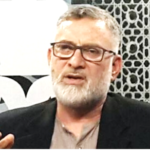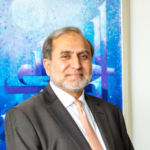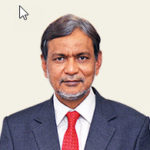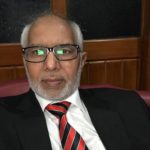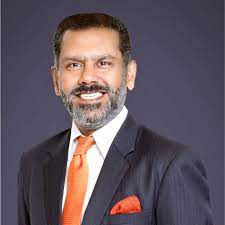
Tauseef H. Farooqui
Chief Executive Officer ALTER CONSULTING LTD
Former Chairman NEPRA
Abstract:
This piece is my very first attempt in my 31 years of professional work to capture my experience of implementing what I titled ‘Dreaming Excellence in Power Sector of Pakistan’. Most of the initiatives that I describe in the later sections were taken to surmount the mammoth challenges I faced in the Power Sector of Pakistan. These are typical challenges faced by the power sectors of most developing countries and need to be addressed in order to provide affordable, reliable, and sustainable power to consumers at large; particularly in industrial countries to make them competitive in the international arena. My motivation is to address real-life problems from policy making to sound planning to effective implementation whilst capitalizing on a trained workforce, slashing green energy project prices, technology etc. Some of the initiatives have already started bearing fruit like the cohesion of industry, policy making and implementation, regulatory oversight, sound generation and transmission planning, the opening of Pakistan’s wholesale power market, online monitoring and compliance, green energy focus, discos’ loss reductions, etc. and I am confident many more dividends will be accrued in the days to come.
Joining NEPRA:
I was selected to lead NEPRA through a highly competitive hiring process from several highly qualified Pakistanis working in developed countries all over the world. I took it as a great challenge to lead and revamp Pakistan’s power market, covering the Generation, Transmission, and Distribution Sectors. I started my journey in the pursuit of excellence with the slogan “A Leader is a servant” and I am here to serve my people for whom I am paid.
During my four-year tenure as the Chairman of the National Electric Power Regulatory Authority (NEPRA) in Pakistan, I took several initiatives to transition NEPRA from being passive to active and on course to becoming a proactive power regulator, thus aligning it with the vision it should have embodied since its inception. These strategic steps were designed to bolster NEPRA’s core mission of regulating Pakistan’s Power Sector, with the overarching goal of fostering an energy landscape that is affordable, reliable, and sustainable while keeping a fine balance between consumers and investors respective interests.
The National Electric Power Regulatory Authority (NEPRA) was established under Section 3 of the Regulation of Generation, Transmission, and Distribution of Electric Power Act, 1997. Its exclusive mandate is to regulate the provision of electric power services in Pakistan. The Regulation of Generation, Transmission, and Distribution of Electric Power (Amendment) Act, 2018 [Act No. XII of 2018] (The Act) brought about a comprehensive transformation in the role and responsibilities of NEPRA. These responsibilities primarily include:
1. Granting Licenses to individuals or entities seeking engagement in electricity generation, transmission, and distribution businesses.
2. Issuing Tariffs to the licensees.
3. Monitoring and Enforcing compliance of Licensees with their Licensing and Tariff Terms.
4. Establishing Consumer Affairs Departments throughout Pakistan to address and resolve consumer complaints.
Furthermore, the amended NEPRA Act played a pivotal role in opening up the wholesale power market in Pakistan, precursor to eventual Competitive Trading Bilateral Contracts Market (CTBCM), as explained later, with the aim of fostering competition and ultimately providing more affordable power to over 36 million electricity consumers in Pakistan.
Power Sector Challenges demanding Change Management – An Act of Courage:
Change Management is not a task, not even a profession, it is a mission that requires passion. My conviction is that excellence is all about not settling for mediocrity and aspiring to achieve the best possible results even in the most challenging circumstances. With this mindset and determination, on 5th of August 2019, I took charge as Chairman NEPRA.
At the very onset, I found Pakistan facing what I believe were the typical challenges of an underdeveloped country’s energy sector, such as; governance issues, bad generation mix due to over 62% imported fossil fuel-based generation, lack of quality and affordable power, pressure groups, excessive losses and recovery, infrastructure of power supply etc., all resulting in an ever-mounting circular debt (accumulated debt which is a cascade of unpaid government subsidies – Wikipedia Definition).
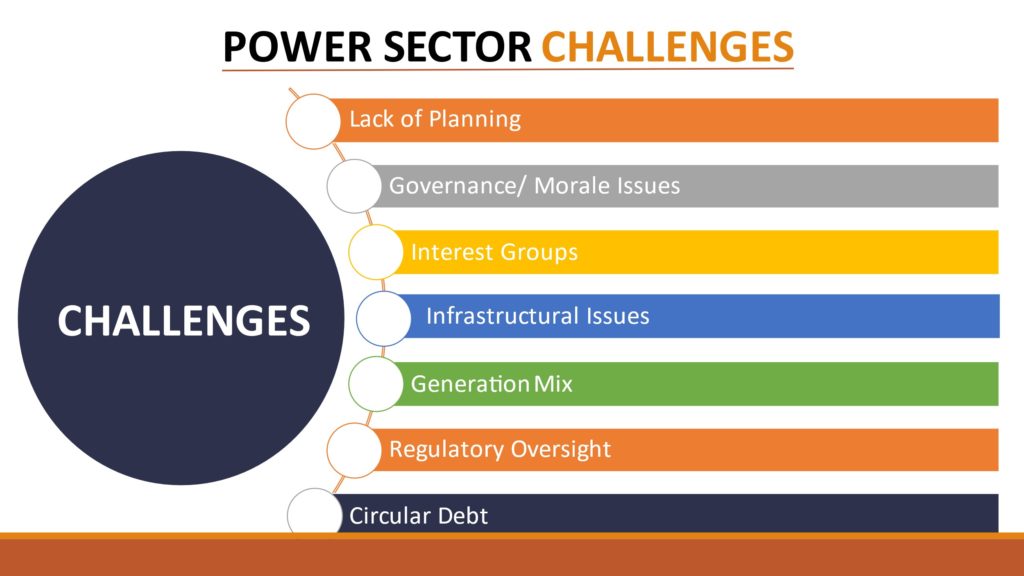
Throughout my tenure I aimed to build a 21st century electricity grid to power our communities, ensuring that low-cost clean energy can be made available to support and improve the lives of all Pakistanis as a NATION. So, in order to achieve my dream of excellence, I decided to focus on dealing with these challenges and take Pakistan’s Power Sector forward to make it modern, affordable, reliable, and sustainable.
Customer satisfaction, catalyzing a paradigm shift towards promoting green energy, tackling sector-specific challenges, and maintaining a visionary approach to engage and inspire the youth were the cornerstone elements of my ‘Change’ project. It became evident that without addressing these critical aspects, realizing my objectives of advancing Pakistan’s power sector was a formidable endeavor.
Sound System Planning through IGCEP and TSEP:
The objective of the Pursuit of Excellence is nothing but to be happy with your actions and their results. It prepares a person to tackle all the problems that come his or her way. Prior to my joining NEPRA as Chairman, Pakistan’s Power Sector was growing sporadically and there was absolutely no unified planning in projecting demand and creating supply on a scientific basis resulting in the boom-and-bust periods we have been experiencing in the power sector. Therefore, my first major action upon becoming Chairman NEPRA was to introduce and approve Pakistan’s first-ever IGCEP (Indicative Generation Capacity Expansion Plan) in 2021. The second iteration of IGCEP was accompanied by the TSEP (Transmission System Expansion Plan). The goal was to ensure the future integration of least cost generation and transmission methods to establish an affordable, reliable, and sustainable electricity mix in Pakistan on a scientific basis.
The plan focused on utilizing indigenous and alternative resources to reduce dependence on imported energy sources and build a 21st-century modern electricity grid to power our communities. I knew that for a new generation of equipment and systems at the grid foundation, we had to ensure that it is reliable, resilient, secure, and affordable. Our program’s portfolio considers holistic solutions to improve the foundation’s systems and components. The right foundation should provide overall support, but also ensure that any future changes or additions to the country’s grid system can be reliably supported. It is important to mention here that on my Advisory to the then Prime Minister of Pakistan, hydropower had been classified as a Renewable Energy source, thus instantly increasing the percentage of RE contribution in Pakistan’s Power Secor from a meagre 5% to a substantial 34% (hydro being 29%) in the generation mix of Pakistan. Through this step, Pakistan has declared its intent to contribute effectively to the global efforts to reduce carbon emissions and combat global warming and more as we now strive to achieve a 62% RE presence in our generation mix by 2030.
Governance – for Overall Power Sector Improvements:
During my tenure, we ensured improvement in the recovery, losses, and customer orientation by conducting regular sessions with the DISCOs, while penalizing them for not achieving the set targets. As a result, NEPRA brought DISCOs’ approved losses target down from 15.7% to 11.2%. These loss targets aren’t achieved on ground unless DISCOS improve upon their work culture, use of technology (AMR/AMI Meters) etc. Only with stringent actions on ground can DISCOs bring losses down to the single digits. To make NEPRA a Proactive Regulator, it was critical that all data available to power sector entities was stored in digital form and made available online so that it could be analyzed for better decision-making. We therefore used modern Information Technology tools and developed portals to collect online performance data from all the generation, transmission, and distribution companies for monitoring, evaluation, analytics, and critical data driven decision-making for bringing much needed efficiency, customer orientation, and thus the profitability of the sector. We revised and modified the Consumer Service Manual after 11 years and established regional offices for the redressal of consumer complaints in various cities of Pakistan including Multan, Faisalabad, Gujranwala, Hyderabad, Sukkur, and Gwadar. This helped in raising the consumer complaints redressal volume manifold and the resolution of over 97% of complaints every year, with a vast majority in favor of the consumer.
We implemented the Industrial Support Package for the consumers of Pakistan (from November 2020 to October 2021) by offering a 25% tariff discount to Large Scale Manufacturing (LSM) and a 50% tariff rebate to Small and Medium-sized Enterprises (SMEs) that helped achieve a 6% GDP growth rate in those 2 years. Subsequently, we implemented the Winter Package in which we offered up to 30% reduction in electricity prices for the consumers of Pakistan (from November 2021 to February 2022). This increased the utilization of power plants in the country during the winter season, which is historically a low-demand season in Pakistan. We ensured the implementation of the Subsidies Reform Program – approved phases 1 & and 2 to rationalize subsidies for various consumers to improve liquidity and thus, the financial health of the government by reducing subsidies in a two-step subsidy rationalization plan as approved by NEPRA.
NEPRA introduced the Microgrid Regulations, 2022 to provide access to sustainable electricity to over 20% of Pakistan’s population, which was without access to electricity. We followed this up with the issuance of 2 Microgrid Licenses to power 11 villages in the country in one go with the help of the private sector; a monumental achievement for Pakistan. Additionally, Wheeling and Electric Vehicle Regulations were introduced to promote modern techniques for electricity supply and consumption. I held regular meetings with industry players (policy makers, legislators, multilaterals, local and international investors, chambers of commerce, and industry experts) to better understand and resolve issues in the sector and to achieve industry growth.
Major Power Sector Reform – Opening up of Wholesale Market in Pakistan:
I tried to fulfill the 30-year dream of this nation by launching CTBCM (Competitive Trading Bilateral Contract Market) to open up Pakistan’s Wholesale Power Market by introducing Traders/Electric Power Suppliers to supply electric power to Bulk Power Consumers using more than 1 MW through Bilateral Contracts at their mutually agreed price. The Authority approved the High-level Design of the CTBCM in December 2019, followed by the CTBCM Detailed Design and Implementation Roadmap, which was approved in November 2020. The Federal Government approved the CTBCM design in 2021 while it was also endorsed by CCI under the National Electricity Policy 2021. Under the Legal, Policy, Regulatory, and Contractual framework development, thousands of pages of policies, rules (07 Nos which include System operator, Market operator, transmission, distribution, supplier, trader, and registration rules), regulations (16 Nos which includes licensing, registration and standards regulations), codes (03 Nos includes Market Commercial Code, Grid Code, Agency Code), agreements, guidelines, and standard operating procedures, etc. have been developed. The Distribution Code, IAA registration of PPIB and AEDB, as well as the Connection Agreements, are in the final stages of development.
Under the institutional strengthening actions, various interventions are made and some are underway at the implementing power sector entities including DISCOs, CPPA, PPIB, AEDB, NTDC, and NPCC to reinforce their organizational capacities. All ten (10) DISCOs have established a first-of-its-kind dedicated 20 team member department called the Market Implementation and Regulatory Affairs Department (MIRAD) to undertake the Transmission Planning, Forecasting, Contract Management & Regulatory Affairs functions within DISCOs. After extensive restructuring at CPPA, the CPPA has attained the strength of around 40 dedicated professionals to perform the operations of the Electricity Market Operator of Pakistan after obtaining a Market Operator license from NEPRA a year before on May 31, 2023.
The restructuring of the System Operator to bring it to par with international standards and best industry practices is underway. PPIB & AEDB are being merged to undertake the function of Independent Auction Administrator (IAA) of the competitive wholesale market and NEPRA is in the final stage of granting the IAA registration. On the technology front, NTDC has implemented the state-of-the-art Secured Metering System (SMS) by installing 711 Automatic Meter Reading (AMR) meters at all the common delivery points (CDPs) of demand and supply side across the country. The SMS project is the heart of the CTBCM and all the market transactions will rely on the transparent and accurate meter readings at the CDPs. Supervisory Control and Data Acquisition (SCADA) is also being expanded across the NTDC network and Phase III of the project is expected to be completed in 2025.
The most essential, yet often ignored, component of any reform process is the people. However, under the power market reforms over the last four years, the power sector entities have been given extensive training. As of today, around 5,000+ man-days of training have been undertaken. Better yet, this journey is set to continue. CPPA-G in collaboration with LUMS, has established the Power Sector Center of Excellence (PSCE) that shall impart trainings to over 1000 men and women from power sector entities under 14 training programs spanning over 30 modules, after a comprehensive Training Need Assessment (TNA).
The delivery of market-related training by CPPA-G through the PSCE is one of the main mandates of the market operator under the approved CTBCM Plan. The main objective of the PSCE initiative is to train key resources from each power sector entity through a central platform specialized in power sector training and equip them with the latest knowledge, skills, and tools to enable them to better serve the nation.
During my term, I have ensured the active participation of NEPRA in developing the National Electricity Policy 2021, ARE Policy 2019, National Electricity Plan, and other key assignments. NEPRA made sure that the best techno-commercial and regulatory input was made available to the Government through active advisories, especially in improving Governance through effective consultations, encouraging the hiring of the right people for the right jobs, and strengthening the transmission and distribution infrastructure. In this regard, numerous meetings, in addition to detailed written correspondence, were held with Government bodies to ensure all stakeholders are on the same page in the pursuit of an affordable, reliable, and sustainable future for the consumers of the Power Sector of Pakistan.
Availability of Electricity to Population At Large – A Serious Challenge:
I personally didn’t see any credible report on this but it is estimated that at least 30 million people are without electricity in Pakistan. Moreover, those who are connected to the Grid face frequent tripping as well as load management or loadshedding as we call it in Pakistan. One of the major reasons for this loadshedding is the government’s AT&C (Aggregate Technical and Commercial Loss) Policy whereby DISCOs limit the supply of electricity to non-paying or less paying consumers as per their defined policy e.g., 6 hours of forced loadshedding on any feeder with over 40% losses etc. NEPRA being the Power Regulator does not approve of this policy. We term it a ‘Collective Punishment’ and have been pushing DISCOs to move towards smart metering to monitor individual consumers based on their payment or default pattern instead of punishing the best paying consumers sharing the same feeder; or at least go to PMT (Pole Mounter Transformer) level for applying the AT&C Policy to lower the extent of ‘Collective Punishment’ as much as possible while we arrange investments to install Smart Meters using AMIs (Advanced Metering Infrastructure) and AMR (Automated Meter Readings).
Power Reliability – A Harsh Reality of the Pakistani Grid:
Pakistan has almost doubled its installed capacity which now stands at 45,375 MW compared to 22,812 MW in June 2013 that includes CPEC investment along with the addition of a 866 km Pak-Matiari DC Line capable of transmitting 4,000 MW of Power from South to North Pakistan and vice-versa. However, transmission investments in the last 10 years were nowhere close to the upgradation requirements of Pakistan’s ageing Grid System. This results in frequent tripping of the system with intermittent blackouts like we experienced on 9 January 2021 and then 23 January 2023. Pakistan is a longitudinal country with more demand in the North and Center. Most of the recent power supply, especially most CPEC projects, have been installed near the metropolis of Karachi or at the mouth of the mine in Thar, one of the largest coal mines in the world with almost 175 billion tons of coal reserves. In both cases, we had a North-South power swing caused by a huge mismatch between demand and supply as the South was producing 3000 MW excess to meet the demand in central and northern Pakistan. As soon as this phenomenon occurred, many plants started tripping eventually causing a blackout in the country. This requires the revamping of Pakistan’s grid with additional transmission lines and extensive attention to system protection.
Customer Service – Almost Non-Existent in DISCOs:
Customer service is almost non-existent in Pakistan especially when it comes to DISCOs. As Chairman NEPRA, I put a lot of focus on inculcating the idea of ‘Customer Orientation’. However, this is probably the hardest thing to achieve and I must admit a lot more has to be done on this front. That requires a major shift in our outdated governance approach. This problem can be overcome by serving electricity consumers like the private sector does. I fully support privatization of DISCOs to enable modern thinking and employing a customer service focus to best serve the consumers whilst providing them with affordable, reliable, and sustainable power. Theft of power is another menace we face in Pakistan as we have almost 13% non-recoveries of invoiced amounts, the major reason for which is electricity theft. I believe the answer is in better governance by hiring the right people for the right jobs, privatization of DISCOs, use of technology like AMIs and AMRs, a customer centric approach etc. but no financing available at the moment to serve 36.6 M Consumers of Pakistan.
Green Energy Initiatives:
The content of Green Energy is Pakistan’s current Generation Mix is around 5%. This number needs to be seriously increased soon so as to capitalize on the cleanest, greenest and cheapest sources of green energy.
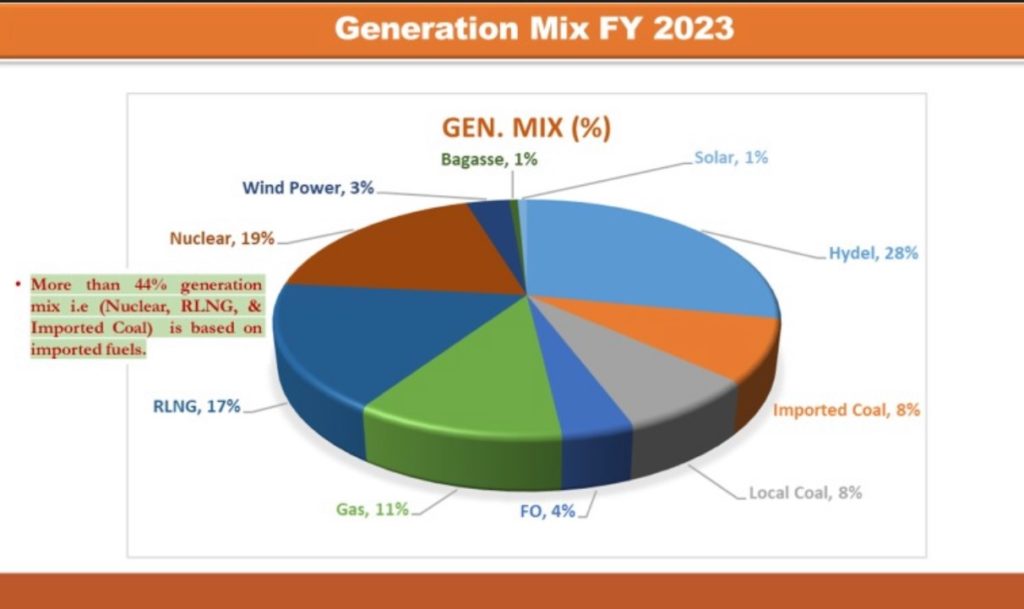
a) This will enhance the much-needed power affordability in Pakistan, as we are the most expansive electricity provider in the region impacting our local businesses as well our competitiveness in the international market.
b) Pakistan has been declared as the 5th most vulnerable country on the Climate Change front, and we need to be extremely mindful of this fact. NEPRA allowed NET-Metering against lots of resistance from the Ministry of Energy Power Division (MOEPD) and DISCOs as MOEPD controls the DISCOs, so there is a huge demand (increased 10 times in the last 3 years) for Rooftop Solar in Pakistan on a small-scale basis. Moreover, the idea that going ahead with mega green projects is the only practical solution to reduce most imported fossil fuel-based generation and combat the serious threat of climate change, has reached wider acceptance in the echelons of power. Pakistan is now embarking upon massive green energy-based projects targeting 10 GW of capacity in next few years.
In addition, Pakistan currently faces growing challenges posed by Climate Change. The Global Climate Risk Index has ranked Pakistan as the 5th most vulnerable country in the world on account of climate change. To combat this risk, we have embarked upon a massive Green Energy Transition in Pakistan. To address this, for the first time in the history of Pakistan, we introduced Competitive Bidding based RE Capacity Expansion (Auctions) and approved the RFP for a 600 MW Solar PV power generation project in South Punjab with a highly competitive consumer-friendly Benchmark Tariff of US cents 3.41/kWh (from historic US cents 17/kWh) to signal a shift towards green energy while focusing on energy affordability. I advised the government to set the mammoth goal of transitioning Pakistan from its current 34% RE (5% Renewable and 29% Hydro) to 62% RE by 2032. We initiated 36 green energy projects in Pakistan including Solar, Wind, and Bagasse worth over 1600 MW. We approved 13,000 MW of solar and wind projects to be inducted into the National Grid by 2030, under the Indicative Generation Capacity Expansion Plan (IGCEP) 2021-2030 Plan. This number went up to over 20,000 MW in the subsequent iteration of IGCEP. This represents the ambitious target set by NEPRA for the promotion of RE projects.
To increase the share of RE in the generation mix, there was a need to make RE cost-competitive in Pakistan. Accordingly, we created an enabling environment for the implementation of RE projects in the country. Aided by the global reduction in prices of RE technology, we offered a tariff of US cents 3.41/kWh to the latest RE Project in Pakistan, down from initial US cents 17/kWh a few years back. We also achieved a lowering of ROE for other projects from 20% to as low as 13% and we expect auctions will lower it further due to competition. It is my conviction that this will be a watershed moment for RE projects in Pakistan. NEPRA also played a key role in the IPP Tariff renegotiations that resulted in a saving of Rs. 870 billion over the next 20 years for Pakistan.
Thinking about the Masses:
Social Responsibility based on United Nations Sustainable Development Goals (SDGs):
Since the United Nations established the 2030 Agenda for Sustainable Development, all countries are facing challenges in one way or another in fulfilling those goals. Being a developing country, Pakistan is also facing this ongoing challenge. However, Pakistan endeavors to implement the SDGs in true letter and spirit. In my journey as Chairman NEPRA, I tried, as a responsible Regulatory Authority Leader, to wholeheartedly address and implement SDGs in all our projects no matter how much resistance I had to face. All my reforms, measures, and actions mentioned in this article reflect the implementation of the SDGs under my ‘Power with Prosperity’ initiative in NEPRA, as described later.
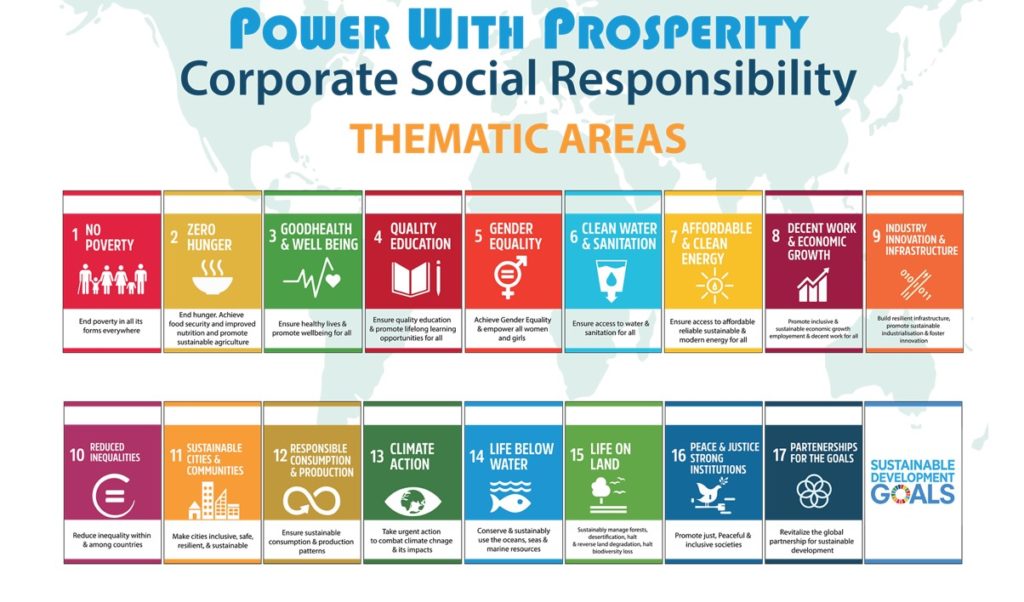
Youth of Pakistan, CSR and HSE Focus:
During my tenure, I made monthly visits to universities and invited students to NEPRA, to encourage and inspire young minds to become future leaders of Pakistan. For the first time in the history of NEPRA, the State of Industry Report and Annual Reports were submitted within the prescribed time limit of the NEPRA Act. Also, the huge volume of data collected as part of the State of Industry Report (SOI) exercise was made available in soft form on NERPA’s website, in the interest of transparency and providing access to the general public. I initiated a Corporate Social Responsibility (CSR) drive under my ‘Power with Prosperity’ initiative and issued the NEPRA Social Investment Guidelines, 2021 to encourage initiatives by the Power Sector Licensees under the UN Sustainable Development Goals (SDGs). This has resulted in over 1050 new CSR Projects by the Licensees all over Pakistan with over Rs. 34 billion spent, creating more than 67,000 jobs, out of which around 9,800 jobs are being done by females. Twice in the past 2 years, NEPRA has celebrated CSR Awards to honor the top-performing Licensees and acknowledge their efforts in the development and well-being of their local communities.
In 2019, I initiated our ‘Power with Safety’ drive and ensured the earthing of 216,000 individual poles in Karachi. I also approved granting Rs. 3.5 million each to the families and jobs for next to kin of the 29 electrocuted persons in KE territory due to electrocution caused by lack of proper earthing/grounding on poles during unusually heavy rainfall in Karachi in 2019. I further rolled out this earthing drive all across the service territories of the remaining Ten (10) DISCOs throughout Pakistan. To ensure the safety of power sector officials and common people, I introduced the Health Safety & Environment (HSE) culture by establishing HSE Directorates in each DISCO and other Licensees, developed the Power Safety Code and Safety Manual, and celebrated the NEPRA HSE Awards twice to honor the top performing licensees in the HSE space.
I initiated the ‘Power with Security’ drive to protect the multi-billion dollars’ worth of Power Sector Assets from cyberattacks. I also introduced the NEPRA (Security of Information Technology and Operational Technology) Regulations, 2022, and formed the Power CERT (Computer Emergency Response Team of the power sector) to ensure the cybersecurity of IT and OT of our national critical infrastructure.
Under my initiative of ‘Power with Unity’, we developed an online portal for creating vital Industry and Academia linkages to resolve the real-life issues faced by the power sector and use the vital brain power of our faculty/students to provide indigenous solutions to our problems.
Addressing Diversity in Power Sector:
Championing the women empowerment agenda, I launched ‘Power with Equality’ drive and hired 56% of the total female NEPRA employees, purely on merit, during my tenure. I also had the privilege of working with the very first female Authority Member in NEPRA since its inception in 1997. As part of the ‘Power with Equality’ initiative, I took concerted efforts to promote gender equality within the power sector. Collaborating closely with top management across the industry, our mission was to create a robust framework that maximized opportunities for women, both in terms of job placements and advancement into leadership roles within their respective organizations.
Energy Week 2020 – A Marvel!
Energy Week 2020 is undoubtedly one of my proudest achievements as Chairman, NEPRA where all key stakeholders of Power Sector were invited to brainstorm power sector challenges and their solutions. This was the very first time in Pakistan that any Public Sector Organization or a Regulatory Authority managed to arrange such a mega event that too for a week with such brilliant National and International Industry Experts.
In the end, we must remember that all businesses can maintain and protect eco-systems and commit to sourcing 100% of operational electricity needs from renewable sources to achieve our common goal of Net Zero through Circular Power using Decarbonization.
Investors can invest more in sustainable energy services, bringing new technologies to the market quickly from a diverse supplier base. We can save electricity by plugging appliances into a power strip and turning them off completely when not in use, including our computers. We can use bikes, walk, or take public transport to reduce load on conventional transportation and reduce carbon emissions.
Affordability, an ongoing challenge:
It is unfortunate that despite all the above efforts, the ultimate goal of reducing energy poverty in the country couldn’t be achieved to the desired level due to a) much higher current installed capacity over 45,300 MW compared to peak demand of around 32,000 MW; b) skyrocketing fuel prices in international markets owing to geopolitics. As we know, over 62% of Pakistan’s power came from thermal generation, primarily based on imported fuel. While this has been reduced to 48% even this number is too high to control the impact of mounting international fossil fuel prices; c) severe devaluation of the Pakistani Rupee against the US dollar (Rs. falling to almost 50% level since 2019 when I took over as Chairman NEPRA) aggravated the situation as not only due to our dependence on imported fuel but also due to mounting of generation/transmission/distribution cost with contracts that have a substantial foreign portion with local indexation.
Conclusion:
My complete tenure and efforts revolve around the major initiatives that I wish to reiterate in this Conclusion:
Hiring the right people for the right job so that they take the right actions to improve the power sector of Pakistan. Sound Policy Formulation to address ground realities and enforcement of National Electricity Policy and National Electricity Plan. Continue my efforts to bring Key Industry Players together for ongoing brainstorming and joint combating of major challenges facing the power sector today and tomorrow. Continuing with sound planning in the power sector using IGCEP and TSEP to achieve least cost based indigenous generation and techno-commercially sound transmission assets. Fostering competition by launching CTBCM in letter and spirit along with bolstering Provincial Grids, Market Operator with the new Commercial Code and System Operator with new Grid Code. CTBCM is the biggest Power Sector Reform Program that needs to be progressed for obtaining private sector investments and involvement for the efficient running of the power sector. Continue improving the Generation mix by further reducing imported fossil fuel- based generation from 48% (62% when I took over) by adding indigenous fuel-based projects like solar, wind, bagasse, local (thar) coal-based projects in the system. More and more green energy needs to be employed to reduce the most expensive and environmentally hazardous energy for energy security as well as affordability whilst addressing the climate change challenges in Pakistan. Retire aged plants and look for further opportunities Tariff Renegotiations to lower tariffs. Use Technology for better compliance and technically and commercially sound decision making. Giving a voice to youngsters and women to enable them to play a more active role in delivering results.
Writer’s Introduction:
Tauseef Hassan Farooqi is as an Electrical Engineer from the University of Engineering & Technology (UET) Lahore and an MBA from Lahore University of Management Sciences (LUMS). He also graduated from Columbia Business School’s Executive Program in Management, Leadership, and Management. He has over 31 years of experience in Power Sector Technical, Commercial, and Regulatory/Legal matters covering project development, contracts management, commercially efficient operations, relationship building, profit maximization, regulatory framework, compliance, etc. He also developed and managed Abu Dhabi’s top three (3) Power and Desalination Plants during his 20 years stay in Abu Dhabi, UAE. His last appointment was as Chairman, National Electric Power Regulatory Authority of Pakistan from 5 Aug 2019 to 4 Aug 2023. He is now running his own Consulting Firm called ALTER CONSULTING (www.alterconsul.com).









